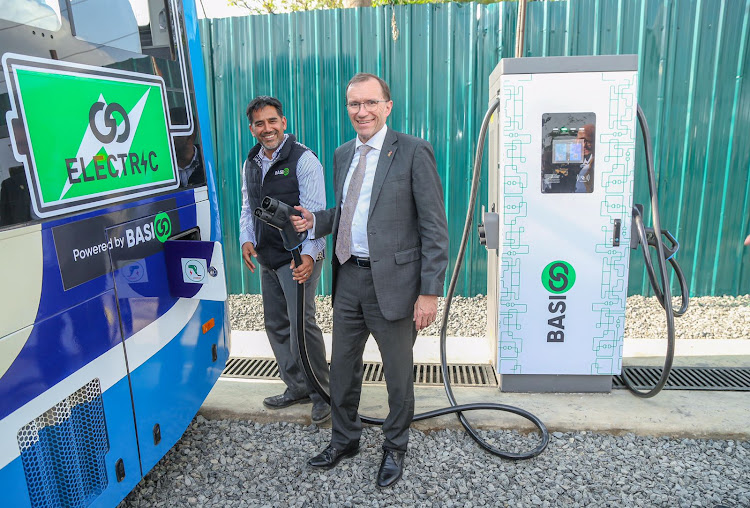Norway has announced a substantial investment of $307 million through Norfund to enhance Kenya’s e-mobility sector.
This strategic investment is set to revolutionise the public transportation landscape in Kenya, facilitating the deployment of 1,000 electric buses and creating 300 jobs. The initiative promises to reduce carbon emissions, foster economic growth, and pave the way for a greener future.
Kenya’s bustling cities are on the brink of a green revolution. The streets of Nairobi and Mombasa, often choked with traffic and pollution, will soon see a fleet of 1,000 electric buses. These buses, powered by clean energy, will replace the diesel-guzzling, smoke-spewing vehicles currently dominating public transport.
Read also: Kenya’s booming EV sector faces threat from new taxes
Introducing electric buses is not just about cutting emissions—though that’s a significant benefit. It’s also about enhancing Kenyans’ quality of life. Electric buses are quieter, produce no exhaust fumes, and are cheaper to run long-term. This means cleaner air, less noise pollution, and potentially lower fares for commuters.
Norfund Creating Jobs and Opportunities
The $307 million investment is also a boon for the local job market. The project is expected to create 300 jobs, providing opportunities for skilled and unskilled workers. This initiative will offer various employment opportunities, from manufacturing and assembling the buses to maintaining and operating them.
Local businesses stand to gain as well. The maintenance and charging infrastructure needed for the electric buses will require partnerships with local companies, fostering a network of businesses centred around sustainable technology. This, in turn, will spur economic growth and innovation, positioning Kenya as a leader in e-mobility in Africa.
Norfund, Norway’s investment fund for developing countries, is at the heart of this initiative. With a clear mandate to support projects that drive sustainable development, Norfund’s investment in Kenya’s e-mobility sector underscores its commitment to environmental stewardship and economic development.
Norway’s involvement is not just financial; it’s also about sharing expertise. Norwegian companies have been at the forefront of electric vehicle technology, and their experience will be invaluable as Kenya navigates the transition to electric buses. This knowledge transfer will help ensure the project’s success and sustainability.
Norfund investment cuts carbon emissions
One of the most significant impacts of this investment will be the reduction of carbon emissions. Kenya, like many developing countries, faces significant environmental challenges. Introducing 1,000 electric buses is expected to cut carbon emissions by thousands of tons annually, substantially contributing to the fight against climate change.
This aligns with global efforts to reduce greenhouse gas emissions and mitigate the impacts of climate change. It also supports Kenya’s commitments under the Paris Agreement to reduce its carbon footprint and promote sustainable development.
Beyond the environmental and social benefits, the investment catalyses economic growth. A reliable and efficient public transportation system is crucial for any economy. By improving mobility, the electric bus project will enhance access to jobs, education, and services, particularly for those in underserved communities.
Moreover, shifting to electric buses will reduce the country’s dependency on imported fossil fuels, improving energy security and economic resilience. The savings from reduced fuel imports can be redirected to other critical areas of development, further stimulating the economy.
Read also: Kenya unveils groundbreaking green mobility policy
Green revolution on the wheels
As the first of the 1,000 electric buses roll out onto Kenyan roads, they will symbolise a shift towards sustainable transportation and the dawn of a new era of economic and environmental progress. Norway’s investment through Norfund is a powerful endorsement of Kenya’s potential to lead the way in e-mobility in Africa.
This landmark initiative promises to transform Kenyans’ daily lives, making cities cleaner, quieter, and more connected. It’s a win-win situation, combining the fight against climate change with tangible economic and social benefits. As Kenya embarks on this journey towards a greener future, the world will be watching and learning from its success.
















